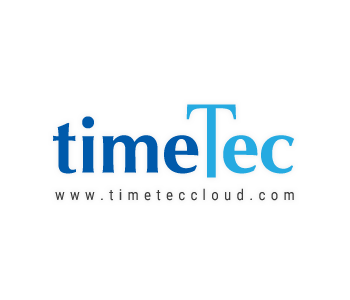Cloud Deployment Models - Finding Your Business Fit
Companies have shifted to the cloud in throngs. According to Mc Kinsey’s report “Cloud-computing adoption has been increasing rapidly, with cloud-specific spending expected to grow at more than six times the rate of general IT spending through 2020”. Amongst the many benefits of cloud adoption are the reduction of IT overhead costs between 30-40%, helping to scale IT processes, optimizing IT asset usage, improving the overall flexibility in IT with better and more features, increase the quality of service, and many more. In short, the cloud is a means for businesses to achieve digital transformation. Nevertheless, organizations have to make that crucial decision of the type of cloud to adopt because apparently, not all clouds are the same.
Let’s explore different methods by which a company can select the perfect cloud deployment model for the business, and we should understand the types and the advantages of them.
Public Cloud - The Public Cloud model is the most sought-after cloud deployment by the masses. It provides reasonable levels of security, reasonably easy to implement, cost-effective and operation cost is affordable. These services are made available to the public and accessible to anyone. The resources such as servers and storage are owned and operated by a third-party cloud service providers such as AWS, Microsoft Azure, Alibaba Cloud, and delivered via the Internet. The cloud provider provides all hardware, software and supporting infrastructure and support to the customers. And the customers access the software and their accounts through a web browser. This type of cloud model provides maximum levels of reliability and scalability.
Private Cloud - The Private Cloud model is the cloud services that are meant exclusively by a business or an organization, it resides inside the organization behind a firewall, and only the organization personnel has access to it. Data residency or the servers can reside at the company’s data centre or host at a third-party service provider. However, the services and infrastructure are maintained on a private network, and the hardware and software are solely dedicated to one organization. This type of cloud model provides maximum levels of reliability and scalability. It is designed exclusively for the enterprise, whereby the businesses have greater control over the infrastructure and get network access and computational resources. This model is preferred by government agencies, financial institutions, or companies that require total control over their operations.
Hybrid Cloud - The Hybrid Cloud model offers better flexibility for companies that want to keep the critical and sensitive data saved and intact in a third party system while sharing general resources in the public cloud for more lenient data access. There could be two parts of hybridization, on infrastructure and applications. Anyhow, the model should ensure safety, scalability, and performance overall. Hence, the Hybrid Cloud model distributes its services/features among public and private clouds via API integration. In daily operations, the users can use the on-premise application (third party application) or TimeTec application on a public cloud when necessary. Many businesses have adopted hybrid solutions because it allows employees to access business-critical applications and information to improve collaboration.
TimeTec is a Software as a Service (SaaS) provider that opens up the possibility for any organizations or businesses that have an interest in our myriads of solutions to explore the possibility of the different cloud models with us.
Going private with TimeTec solution is a possibility considering the budget and timeline of an organization. Rather than starting to develop applications desired from the ground up, TimeTec can help to mould the readily available solutions to match your business needs at a lesser cost and reduced timeline. Worth to note that the investment is still significant if compared to the public cloud, however, your organization will be in charge of the critical data, the security and the infrastructure of it, going forward. TimeTec, on the other hand, will be collaborating with your organization on the development of the application.
The scope TimeTec undertakes for a Private Cloud model on-premise or on a third-party cloud provider platform includes:
- · Client’s Account Setup and Configuration
- · Time Attendance Web Setup & Configuration
- · Time Attendance Mobile Server Setup & Configuration
- · Time Attendance iOS & Android App Setup & Configuration
- · Client Database Server Setup & Maintenance (Multi AZ, Read Replica)
- · Google Map Services Setup
- · AWS Other Services Setup
- · Installation & Commissioning of the Private Cloud for a client will be finalised pending discussions with the client
- · Modules included:
- - Dashboard
- - Clocking Methods (Beacon, GPS, WiFi)
- - Attendance
- - Report
- - Report Scheduler
- - Language (English + One other)
- - SAP Integration (import or export of user listing/transaction log)
- - API & SDK for all supported current functions
- - Maintenance & Bug Fixing
If you intend to go Private with our solutions, contact us at info@timeteccloud.com for more information and discussion.
Another option on the table is Hybrid cloud; where TimeTec is open to collaborating with your company to achieve the level of integration required in the application side. With this integration, the organization can use both the on-premise/private application and TimeTec application on a public cloud when necessary for its daily operation. For Hybrid cloud the license subscription remains with additional requirements from the client and the scope TimeTec covers for Hybrid include:
- · Integration via API on public cloud
- · Maintenance & Bug Fixing
- · Post Project Customization Requests











.jpeg)





0 comments: